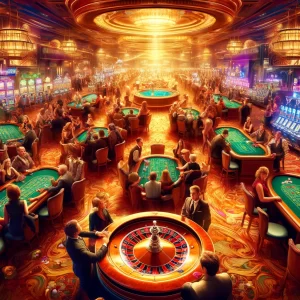European Football Championship Betting History
Betting on the European Football Championship, or as it’s often referred to, euro football betting, has a long and storied history, with fans and punters alike eagerly anticipating the outcomes of each tournament. From the early days of simple wagers to the more sophisticated betting options available today, the European Championships have always been a popular event for placing bets.
Historical Trends: How Betting on the European Championships Has Evolved
Over the years, the way in which people bet on the European Championships has evolved significantly. In the past, betting was limited to simple win/lose bets, but today punters have a wide range of options to choose from, including over/under bets, handicap bets, and even live betting during matches.
One of the most notable trends in European Championship betting history is the increase in online betting. With the rise of online sportsbooks and betting sites, punters can now place bets from the comfort of their own homes, making it easier than ever to get in on the action.
Another trend in European Championship betting history is the increase in the number of markets available. Punters can now bet on everything from the winner of the tournament to the top goal scorer, providing a wealth of options for those looking to place a wager.
In recent years, the European Championships have also seen a rise in the popularity of in-play betting. Punters can now place bets during matches, with odds changing in real-time based on the action on the field. This has added a new level of excitement to European Championship betting, allowing punters to stay engaged throughout the tournament.
Overall, the evolution of betting on the European Championships has made the tournament even more exciting for fans and punters alike. With a wide range of betting options and the convenience of online betting, the European Championships have become a must-watch event for those looking to add an extra level of excitement to the games.
Conclusion:
The evolution of betting on the European Championships has transformed the way punters engage with the tournament, offering a wide range of options and increasing the overall excitement of the games.
Notable Moments: Memorable Upsets and Surprising Outcomes in Betting History
Throughout the history of the European Championships, there have been many memorable moments that have surprised fans and punters alike. From underdog teams pulling off shocking upsets to unexpected outcomes that have left punters scratching their heads, the European Championships have provided plenty of excitement for those looking to place a wager.
One of the most memorable upsets in European Championship betting history came in 2004 when Greece, a 150/1 outsider, won the tournament against all odds. The team’s victory shocked punters and bookmakers alike, with many writing off Greece’s chances before the tournament began. This unexpected outcome serves as a reminder that in football, anything can happen, making it a thrilling sport to bet on.
Another surprising moment in European Championship betting history came in 2016 when Iceland, a small nation with a population of just over 300,000, reached the quarterfinals of the tournament. Iceland’s success captured the hearts of fans around the world and provided punters with an unexpected underdog to root for.
In addition to these memorable moments, the European Championships have also seen their fair share of surprising outcomes, with favorites falling short and outsiders exceeding expectations. These unexpected twists and turns are what make the European Championships such a thrilling event to bet on, keeping punters on the edge of their seats throughout the tournament.
Conclusion:
The European Championships have provided fans and punters with plenty of memorable moments, from shocking upsets to surprising outcomes, making it a tournament that is always full of excitement and surprises.
In conclusion, the European Football Championship betting history is a fascinating journey through the evolution of how punters engage with the tournament. With a wide range of betting options, unexpected upsets, and surprising outcomes, the European Championships have solidified their place as a must-watch event for both football fans and punters alike. So, whether you’re a seasoned punter or new to the world of sports betting, the European Championships offer a thrilling experience that is sure to keep you on the edge of your seat throughout the tournament.


